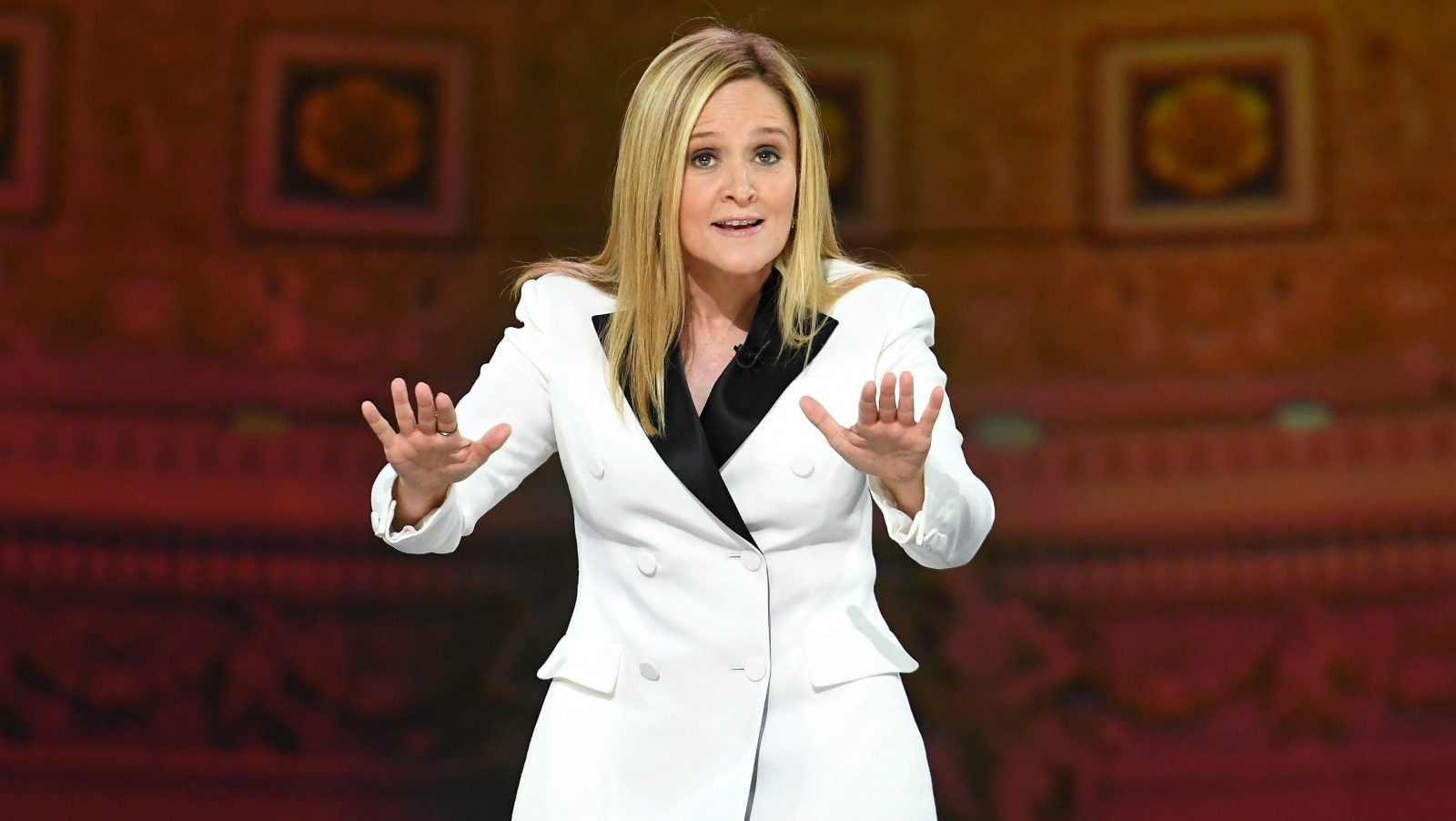Samantha Bee’s fans are embracing the liberal bubble that helps them cope with Trump
Samantha Bee gets heat from people at both ends of the political spectrum. Critics on the left accused her show of belittling Bernie Sanders supporters, and coming off as insensitive and privileged with misfired jokes about jail. Meanwhile, as Conan O’Brien put it, the Canadian-American comedian is Donald Trump’s greatest nightmare: “a funny female immigrant with a brain.” But for her fans, she’s an ointment for frayed nerves in a difficult political climate.


Samantha Bee gets heat from people at both ends of the political spectrum. Critics on the left accused her show of belittling Bernie Sanders supporters, and coming off as insensitive and privileged with misfired jokes about jail. Meanwhile, as Conan O’Brien put it, the Canadian-American comedian is Donald Trump’s greatest nightmare: “a funny female immigrant with a brain.” But for her fans, she’s an ointment for frayed nerves in a difficult political climate.
“Comedy helps us cope with things that are hard to talk about and hard to deal with. It provides relief for people,” said Natalie, one of the guests attending Bee’s Not the White House Correspondent’s Dinner event on April 29 in Washington, DC. (Natalie, who works in philanthropy, asked that her last name not be included because of the nature of her work.) “It’s like therapy. It’s the only thing that’s making it tolerable,” said Kate Damon, a graphic designer. “It’s like a yoga class.”
“Relief” was a common theme among the event’s attendees. For those on the left, comedy in the Trump era isn’t just about pointing out hypocrisy in politics and media, à la Jon Stewart’s The Daily Show during the Obama administration. (These days, it’s easy to notice absurdities on your own.) Instead, people have a near-desperate need for catharsis, in the form of jokes that capture the turbulent emotions of the Trump era.
This kind of “therapy” happens in a liberal bubble that is largely cushioned from opposing views—but people don’t seem to mind.
“I know there are other people that see things as I see it,” said Lisa, who recently retired from working at the Department of Justice, and who also declined to give her last name. Comedians who energetically criticize politicians and pundits give her “some feeling of hope for us,” she added.
During the event, Bee ruthlessly laid into cable news, particularly CNN, calling the network’s grid of talking heads an infestation of “well-coiffed message robots shouting at teach other from increasingly tiny boxes.” Amid all the noise, it can be difficult to difficult to grasp what is real, actual news—particularly when the president says one thing and changes his mind after he speaks with the next person. Comedians like Bee help fans decide where to direct their attention, event attendees said.
“In the context of Trump, it’s like a confetti of crises. There is so much happening, it’s hard to focus, and it’s easy to be depressed in this context, because the consequences of his actions have real impact,” said DeRay McKesson, one of the more prominent voices of the Black Lives Matter movement. “Comedy helps us remember that we still maintain control of our lives, there is still joy amidst so much struggle, and that we are always more than our pain.”
The moment of the show most explicitly aimed at providing liberals with hope and relief was a segment that played on the alternative-history Amazon series The Man in the High Castle. In Bee’s version of 2017, Hillary Clinton is president, her cabinet is 51% women, and Anthony Weiner is the US ambassador in North Korea. But some critics argue these kinds of escapist exercises are counter-productive, because they both idealize your political camp and underestimate the opponent. Matthew Dessem writes at Slate: “Want a Photoshopped image of Hillary Clinton in the oval office, flanked by a group of advisors including Maxine Waters, Kamala Harris, and Elizabeth Warren? You’ll find it here, but like all liberal fan fiction, it’s not good for you.”
Indeed, Bee and other late-night comedians sometimes get blamed for reinforcing partisan divisions; one headline from The Atlantic even accused late-night comedy of “fueling the rise of Trump.” Bee poked fun at this criticism, saying in a whiny voice, “Why can’t TV liberals just be nice?”
Whether or not comedians like Bee contributed to the rise of Trump, it’s undeniable that liberal political comedy—just like the info-tainment of Fox & Friends, or Alex Jones’ Infowars tirades—is not designed for cross-partisan appeal. If anything, by telling liberal audiences that their own beliefs are good and just, comedy is strengthening today’s much-decried echo chamber. But the event’s attendees seem to embrace their bubbles.
“You’re never going to get folks nowadays who want to listen to people with different views,” said Natalie. “We all live in our echo chambers, and it’s okay.”